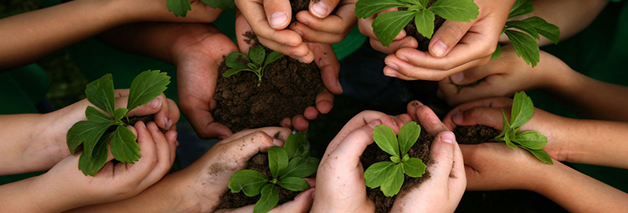
The 1992 Earth Summit stressed for the first time on the importance of education for achieving sustainable development. However, it was at the 2002 World Summit on Sustainable Development in Johannesburg, that the concept of Education for Sustainable Development (ESD) started to gain importance. In fact, the Summit recommended the adoption of a Decade of Education for Sustainable Development (DESD) spanning from 2005 to 2014, to re-energise efforts towards ESD, to transform mindsets and lifestyles in addition to reorienting education policies, practices and investment to address sustainability.
So what is Education for Sustainable Development?
Education for Sustainable Development is an emerging concept and a dynamic teaching and life-long learning process that promotes and stimulates critical thinking, creativity, greater awareness and empowerment in people of all age brackets. It encourages generations to make informed choices for creating a more sustainable future.
ESD is in fact an all-inclusive package within which key environmental, economic, social and cultural issues are interlinked and holistically integrated in the pursuit of sustainable development.
Worldwide, ESD has gradually become ingrained in core educational issues namely: promotion of peace and human rights, poverty reduction, good governance, citizenship education, natural resources conservation, gender equality, corporate social responsibility and accountability, sustainable urbanisation and protection of indigenous cultures, amongst others.
Efforts undertaken by Mauritius:
Since Mauritius endorsed the DESD, efforts have been afoot to strengthen the link between education and sustainable development. Great strides have been made to achieve universal primary education as well as gender, race and religion parities in gross educational enrolment rates. In addition, the Mauritian government has benefited largely from UNESCO’s expertise to promote lifelong learning and continuous teacher training, mainstreaming sustainable development considerations into education and promoting eco-citizenship, amongst others. Massive investment are made in the education sector annually in terms of infrastructure, free, universal and compulsory education till the age of 16, free textbooks in primary schools, free transport for all students (pre-primary to tertiary), a school meal programme for low achieving schools and subsidised Cambridge O-levels and A-levels exam fees for pupils from needy families. In 2006, a new educational reform strategy was adopted by the Government to empower young people of Mauritius to become autonomous and capable of constantly adapting to changes in all spheres of life. Following this, National Primary and Secondary Curriculum Frameworks were adopted. The latter set the rationale and learning outcomes for all subject areas in primary and secondary education in Mauritius (Ministry of Education and Human Resources, 2008).
As rightly said by the Hon. Prime Minister, Dr. Navinchandra Ramgoolam, in his address to the UNESCO’s Executive Board regarding efforts at mainstreaming education for sustainable development: “If Mauritius succeeds, the world can”.
Locally, leadership in all aspects of formal ESD rests with the Ministry of Education and Human Resources, but various organisations (other ministries, NGOs and CBOs) are involved in non-formal environmental and sustainable development education as well.
The Ministry of Environment and Sustainable Development is primarily involved in non-formal and informal sensitisation about Education for Sustainable Development. It has undertaken a range of projects and programmes to promote Education for Sustainable Development. Some of these include:
• Awareness and sensitisation campaigns aimed at all target groups (children, youth, women, public, local authorities, private sector representatives, hoteliers, etc.)
• Publication of a range of resources materials (posters, pamphlets, booklets, films, radio and TV programmes, advertisements, billboards) for sensitisation and awareness raising (talks, exhibitions, etc.).
• launching of a national campaign to promote environmental ethics;
• setting up nine Eco-villages, which will demonstrate new ways of life conducive to environmental protection and sustainable development;
• further promoting the concept of waste segregation, recycling and composting;
• and supporting the School Endemic Garden Project and waste segregation to enable our younger generations to understand the importance of biodiversity and waste management.